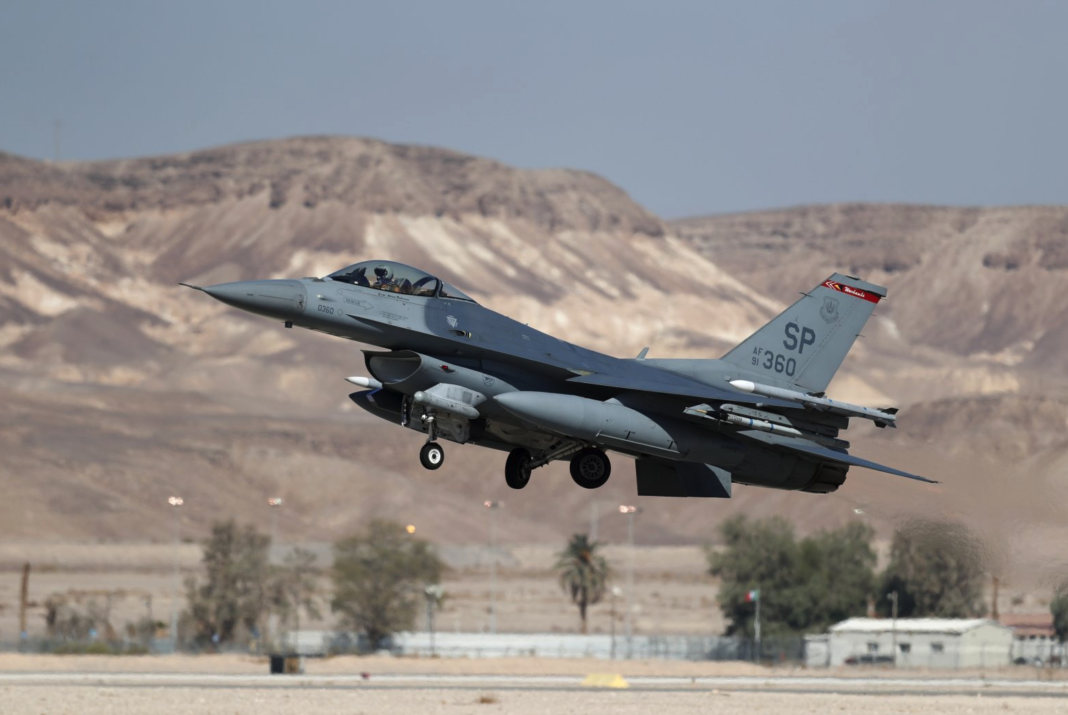The top foreign policy aide to Turkish presidential challenger Kemal Kılıçdaroğlu believes an opposition victory in next month’s elections could unlock a new era of defense cooperation between Ankara and the U.S. By David Brennan in NewsWeek on April 19, 2023.
Ünal Çeviköz told Newsweek in an interview that a new, opposition-led government would look to conclude a stalled $20 billion deal for American-made F-16s and rejoin the F-35 fighter jet program from which Turkey was removed in 2019 after purchasing Russian-made S-400 anti-aircraft systems.
« With the democratization processes in domestic politics, and with a new vision of the foreign policy implementation of Turkey after the elections with the new government, we believe that Turkish-U.S. relations will also have better openings and horizons, » Çeviköz said.
Kılıçdaroğlu is standing as the opposition candidate for the May 14 election, representing the six-party Nation Alliance, which was formed with the singular intention of unseating President Recep Tayyip Erdoğan and ending his 20 years in power. Kılıçdaroğlu—a veteran bureaucrat and long-time leader of the social democratic Republican People’s Party (CHP)—is slightly ahead of the incumbent in polls.
Çeviköz said the opposition group is « quite confident » of success and that a new Kılıçdaroğlu-led administration will be looking to repair some of the damage done to Turkey’s foreign relations over 20 years under Erdogan, particularly to Turkish-U.S. defense-industrial cooperation.
A proposed $20 billion deal for 40 Lockheed Martin Block 70 F-16 fighter jets as well as upgrades to Turkey’s current F-16 fleet, has been stuck in limbo amid a range of U.S.-Turkish disputes, including Ankara’s continued block on Swedish NATO accession.
NEWSWEEK SUBSCRIPTION OFFERS >
This week, the U.S. approved an F-16 modernization package worth some $259 million, a decision Çeviköz said he hopes is a good sign for the future, and recognition of the Turkish parliament’s recent approval for Finland to join NATO.
« It’s a very marginal part of the whole project, which is still pending. » Çeviköz said. « The overall big project is more than $20 billion. So, we expect that after the elections, these reciprocal encouraging steps will probably continue, and we will achieve further progress. »
The F-35 problem is more challenging. Rejoining the fifth-generation jet program « is a goal, and it is already present in our common position paper which has been signed by the six leaders of the nation alliance, » Çeviköz said.
« But I have to admit that we have lost two years, » he added, noting that the elements of development and production that were once Turkey’s responsibility have now been taken over « by other producers. »
« So, it will be difficult to enter into the F-35 project per se, » he said. « But the idea here is it’s a matter of continuing key defense-industrial cooperation between Turkey and the U.S. The F-35 is only the fifth-generation project. There will be further technological development in the future, for the formation of the sixth generation, perhaps. »
« The idea that we have in our mind is that we want to show our determination to continue the development of Turkish defense-industrial production in coordination and cooperation with the U.S. And that is what we mean when we say we want to return to the F-35 project. »
Ankara was kicked out of the F-35 program for purchasing S-400 Russian surface-to-air missile platforms, ignoring warnings from fellow NATO nations including the U.S. that the systems could compromise allied security and classified information about the F-35 aircraft.
Çeviköz said a new opposition-led government would be willing to work with NATO allies to nullify any dangers posed by the S-400s, though he wouldn’t commit to abandoning the systems entirely.
« We understand that one of the main hurdles in front of Turkey’s reengagement in the F-35 project or further defense-industrial cooperation with the U.S. is, of course, the procurement of S-400s from the Russians, » he said.
« I understand that the future government will be of course willing to find a solution to that problem. I can’t make any judgement now as to how this solution is going to be reached. But it will be a kind of understanding which will satisfy the two parties, both Turkey and the U.S. And with the resolution of this S-400 hurdle, I’m sure the reintroduction of Turkey into the defense-industrial cooperation with the U.S. will continue. »
Pressed on whether a future Kılıçdaroğlu administration would be willing to give up the Russian systems, Çeviköz responded: « ‘Giving up’ can be defined in different terms. Certainly, Turkey is not going to throw them away, because we paid for them, and we have installed them. »
« But there could be several mechanisms or options which can be satisfactory for the security perception that our NATO allies have about the presence of S-400s in Turkish territory. I think there will be a lot of possibilities to overcome those concerns. »

